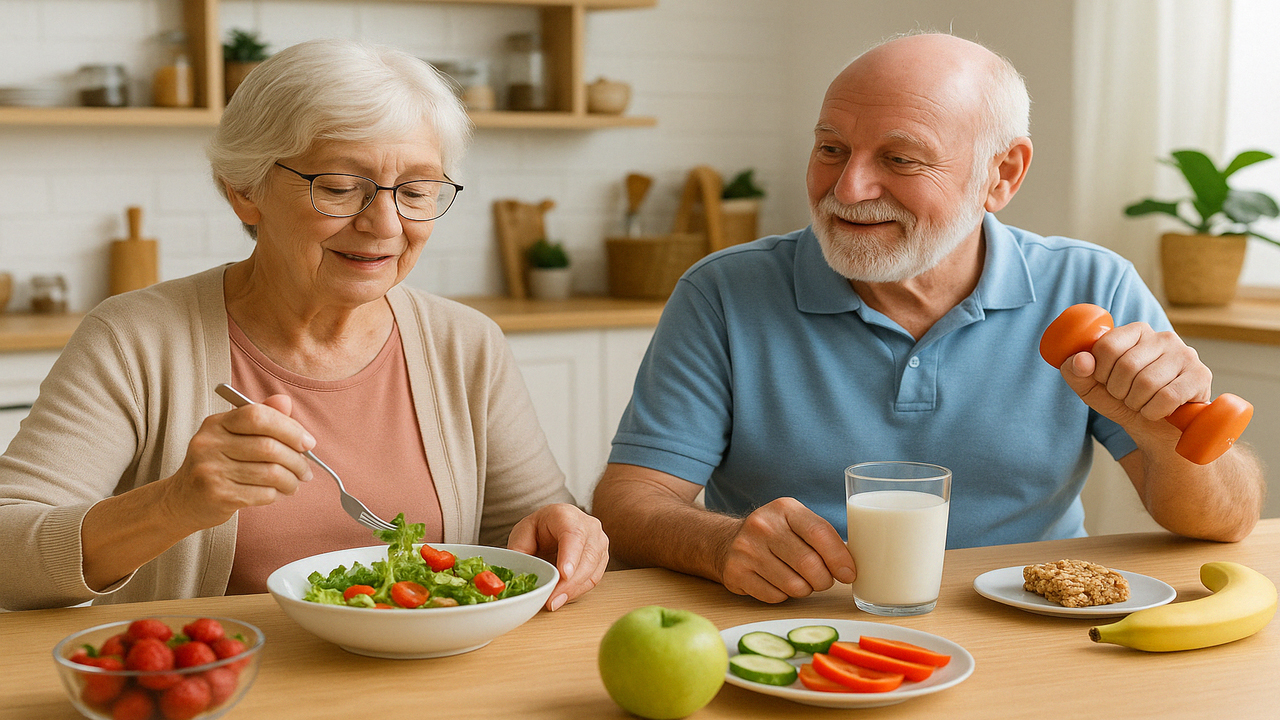
How to Gain Weight for Elderly, Healthily and Effectively in a Natural way
Mclub World – How to Gain Weight for Elderly, Healthily and Effectively in a Natural way
Gaining weight for elderly individuals can be like filling a leaky bucket—no matter how much you pour in, it seems to disappear. This happens due to natural muscle loss, reduced appetite, swallowing difficulties, or certain medications. While weight loss in seniors might appear common, unintentional decline should never be ignored.
As bodies age, they lose muscle mass and energy storage becomes less efficient. Combined with less physical activity, these changes often reduce overall calorie needs and intake. This creates a unique challenge—how to gain weight for elderly without increasing health risks.
To tackle this, elderly individuals should use smart strategies that prioritize nutrition, consistency, and comfort. Below are six effective and natural ways to healthily gain weight.
“Read more : Venue for Traditional Thai Dance Performances: Thai Cultural Tour Tips“
Think of your plate as prime real estate—each bite must be valuable. Instead of filling it with sugary or fatty junk, aim for foods rich in protein, healthy fats, and essential vitamins. Incorporate lean meats, eggs, full-fat dairy, legumes, avocados, and whole grains into daily meals.
While fast food may offer quick calories, it’s like building a house with weak materials. You may see fast changes, but the foundation won’t support lasting health. Nutrient-dense foods ensure both weight gain and well-being improve together.
According to Mclub World (mclubworld.org), seniors who focus on balanced meals experience better digestion and muscle retention over time.
For elderly people with small appetites, large meals can feel overwhelming. Instead, eating several mini-meals throughout the day helps maintain a steady calorie intake. Think of it like adding kindling to a fire—frequent snacks keep the metabolism burning.
Include healthy snacks like:
Keep these snacks easily accessible, encouraging spontaneous eating throughout the day. As Mclub World suggests, grazing between meals helps increase overall calorie intake without burdening the digestive system.
Eating should never feel like a chore. For seniors with dental issues, chewing hard food can reduce meal enjoyment. Similarly, a dulled sense of taste or smell may decrease appetite. Adjusting meals to accommodate these changes can significantly help.
For example:
This is like tuning a guitar—you adjust the strings to create harmony. Customizing meals makes eating easier and more pleasurable, encouraging consistency in nutrition.
“Read more : Music for Brain Therapy: Neuroscientists Reveal that Music has Good Therapeutic Powers“
Exercise may seem unrelated to weight gain, but it works like a reset button for the metabolism. Mild physical activity boosts appetite, strengthens muscles, and promotes mental well-being.
Try simple activities such as:
Think of exercise as the spark that lights your internal engine. Even 20 minutes daily can trigger hunger and help your body absorb nutrients better.
However, always consult a healthcare professional before starting any exercise routine. Each body has its own limits and needs personalized advice.
If food alone doesn’t boost your appetite or weight, nutritional supplements can offer help. Use them like backup singers in a performance—there to enhance, not replace the lead.
Meal replacement drinks, protein powders, or vitamin-enriched smoothies can provide extra calories and nutrients between meals. However, avoid relying solely on them. Supplements should support natural meals, not become substitutes.
A doctor or nutritionist can recommend the best product based on your body’s needs and possible interactions with medications.
Often overlooked, hydration and emotional well-being play a large role in senior health. Drinking enough water prevents fatigue, while social interaction can positively affect appetite.
Eating with friends or family makes meals more enjoyable and may naturally encourage higher food intake. It’s like dining in a cozy café—warm, inviting, and uplifting.
Joining local senior groups, cooking clubs, or even virtual meal-sharing sessions can transform mealtime into a joyful experience.
To gain weight for elderly individuals in a healthy and sustainable way, focus on nourishing the body, staying active, and adjusting meals to personal preferences. Think of the journey as building a strong bridge—each healthy habit is a plank, creating a path toward better strength and energy.
As highlighted by Mclub World (mclubworld.org), embracing a holistic lifestyle—combining nutrition, activity, and emotional wellness—offers the most promising results. Weight gain isn’t about numbers alone; it’s about reclaiming vitality and quality of life.
This website uses cookies.